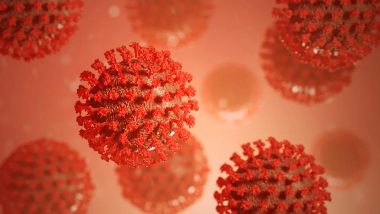London, June 30: A combination of antiviral drugs commonly used to treat HIV showed no beneficial effects in patients hospitalised with COVID-19 in a large-scale randomised trial, scientists in the UK have found.
The findings "convincingly rule out any meaningful mortality benefit of lopinavir-ritonavir in the hospitalised COVID-19 patients we studied," the scientists running the RECOVERY trial at the University of Oxford said in a statement on Monday. COVAXIN: India's First COVID-19 Vaccine Candidate Given DGCI Nod, Human Trials in July.
In March, the RECOVERY trial was established as a randomised clinical trial to test a range of potential treatments for COVID-19, including lopinavir-ritonavir, an antiviral treatment commonly used to treat HIV. Over 11,800 patients have been enrolled from 176 NHS hospitals in the UK for the trial.
On Monday, the trial Steering Committee concluded that there is no beneficial effect of lopinavir-ritonavir in patients hospitalised with COVID-19. A total of 1,596 patients were randomised to lopinavir-ritonavir and compared with 3,376 patients randomised to usual care alone, the statement said.
Of these patients, four per cent required invasive mechanical ventilation when they entered the trial, 70 per cent required oxygen alone, and 26 per cent did not require any respiratory intervention, it said.
There was no significant difference in mortality for lopinavir-ritonavir compared to usual care, and the results were consistent in different subgroups of patients, the scientists said. There was also no evidence of beneficial effects on the risk of progression to mechanical ventilation or length of hospital stay, they said.
"These preliminary results show that for patients hospitalised with COVID-19 and not on a ventilator, lopinavir-ritonavir is not an effective treatment. In 100 days, the RECOVERY trial has provided results enabling change in global practice three times," said Peter Horby, Professor at the University of Oxford, and chief investigator for the trial.
The researchers said they were unable to study a large number of patients on invasive mechanical ventilation because of difficulty administering the drug to patients on ventilators.
As such, they cannot make conclusions about the effectiveness in mechanically ventilated patients, the researchers said, adding full results will be made available as soon as possible. COVID-19 Vaccine: Daiichi Sankyo in Talks With UK's AstraZeneca for Supply of Doses to Japan.
"These are clear results and once again emphasise the value of large randomised clinical trials in differentiating drugs we hope work from treatments we know do work," said Martin Landray, Professor of Medicine and Epidemiology at the University of Oxford.
"In many countries, current guidelines recommend lopinavir-ritonavir as a treatment for COVID-19," said Landray, Deputy Chief Investigator of the trial.
The results from this trial, together with those from other large randomised trials, should inform revisions to those guidelines and changes to the way individual patients are treated, the researchers said.













 Quickly
Quickly


